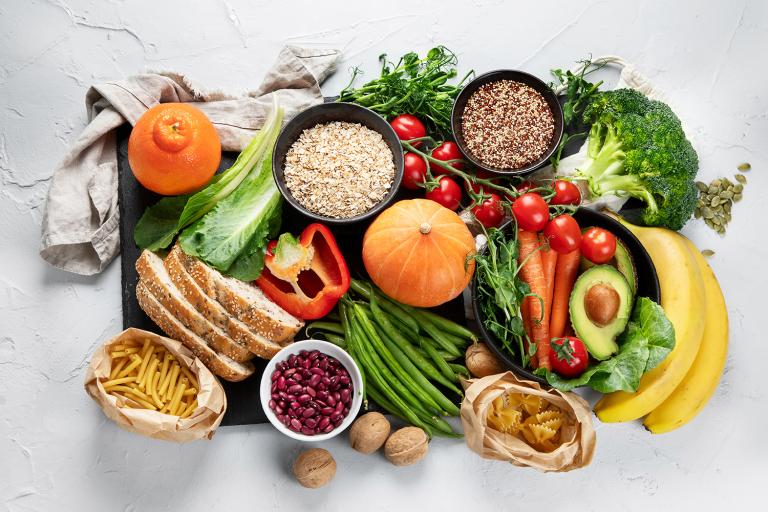Chronic constipation is the top gastrointestinal complaint in the United States. According to the National Digestive Diseases Information Clearinghouse, more than four million Americans have frequent constipation.
What Causes Constipation?
The possible causes are numerous and can be complex. The source of constipation could be:
- dehydration
- lack of:
- fiber
- beneficial bacteria
- B vitamins
- certain medications
- chronic stress
- genetics
...to name a few.
Processed Foods
Constipation is much more common in Western cultures than elsewhere due in part to our sedentary lifestyles and consumption of processed foods.
Fiber (indigestible complex plant carbohydrates found in fruits, vegetables, and whole grains) is removed from most processed foods because it decreases shelf life.
Indigenous cultures that have a high intake of dietary fiber invariably enjoy superior intestinal health.
Diet and Nutrition to Fight Constipation
-
Start with Fiber
High intake of dietary fiber has many benefits for individuals, including:
- Decrease of transit time for stools
- Decrease of absorption of toxins from stools
- Bulking and softening of stools
- Increasing frequency, quantity, and quality of bowel movements
When bowel transit time is slow, waste is not promptly eliminated from the body. It creates prolonged bacterial fermentation of retained fecal material, which can produce toxins. As toxins are reabsorbed into the body, the risk of developing colon diseases and other health problems increases. The toxins stress the gallbladder, pancreas, and liver, giving rise to fatigue and headaches.
Toxins created in the constipated bowel damage digestive enzymes in the intestinal wall and cause digestive problems and nutrient deficiencies. The walls of the colon can weaken and herniate, giving rise to diverticulosis. The excessive bowel transit time associated with constipation can also contribute to bowel disorders such as irritable bowel syndrome and colitis.
In addition, studies suggest that constipation may indirectly cause estrogen to be reabsorbed. With slow transit times, a low-fiber diet, and low concentrations of beneficial Lactobacilli and Bifidobacteria, there will be reabsorption of estrogen. This can lead to estrogen dominance, which can result in long-term health issues.
If you are not eliminating one and a half feet of feces per day (the length of the descending colon), you are not getting enough dietary fiber in your diet. This comes as no surprise, as the average intake of dietary fiber in the US is 12 to 15 grams. I recommend at least 35 grams daily for optimal health.
-
Balance your Gut with Living Foods
When you eat living foods daily, you replenish the good bacteria in your gut and increase your fiber intake, which helps control appetite.
Living foods either contain beneficial bacteria, or they act as food for the beneficial bacteria already in the gut.
Living foods include non-starchy vegetables and low-sugar fruits.
-
Fermented Foods
Also be sure to include the following fermented foods in your diet:
- Live cultured pickles
- Sauerkraut (refrigerated, unpasteurized)
- Cultured vegetables
- Kimchi
- Cheese made from raw milk
- Unpasteurized miso
- Tempeh
- Kombucha
- Yogurt containing live cultures
- Kefir (dairy and nondairy)
-
Prebiotic Foods
In addition to fermented foods, you need to eat foods rich in soluble fibers called prebiotics. Prebiotics feed the good bacteria in your gut. Aim to include high-prebiotic foods in your diet as often as possible.
Some examples include Jerusalem artichokes, dandelion greens, garlic, and onions.
-

